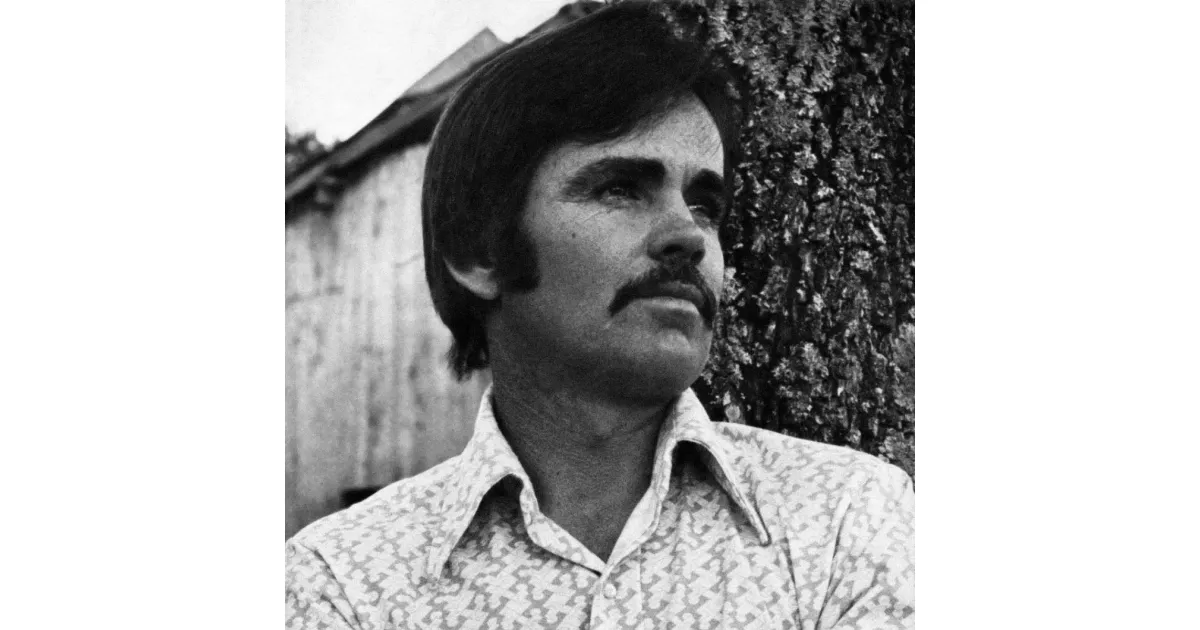Cormac McCarthy was a celebrated American author known for his novels spanning Western, post-apocalyptic, and Southern Gothic genres. Characterized by graphic violence and a distinctive writing style featuring sparse punctuation and attribution, his works have secured his reputation as one of the greatest American novelists. He authored twelve novels, alongside plays, screenplays, and short stories.
1922: Ulysses published
James Joyce's "Ulysses" was published in 1922. McCarthy later regarded this novel as "great".
1923: Start of Time's List
In 1923, the starting year for Time's list of the 100 best English-language books, which included McCarthy's Blood Meridian in 2005.
1928: Inspiration for Screenplay
In 1928, a biography of William Gregg, a pre-Civil War industrialist, provided inspiration for McCarthy's screenplay
1929: The Sound and the Fury published
William Faulkner's "The Sound and the Fury" was published in 1929. McCarthy later regarded this novel as "great".
1930: Jim Long Born
In 1930, Jim Long, McCarthy's childhood friend and later inspiration for J-Bone in Suttree, was born.
July 20, 1933: Cormac McCarthy Born
On July 20, 1933, Charles Joseph McCarthy Jr., later known as Cormac McCarthy, was born in Providence, Rhode Island.
July 20, 1933: Birth of Charles Joseph McCarthy Jr.
On July 20, 1933, Charles Joseph McCarthy Jr. was born in Providence, Rhode Island.
1937: Family Relocation to Knoxville
In 1937, McCarthy's family relocated to Knoxville, Tennessee, where his father worked as a lawyer.
1941: Family Settled in South Knoxville
By 1941, the McCarthy family had settled in a house on Martin Mill Pike in South Knoxville.
1951: Attends University of Tennessee
In 1951, McCarthy began attending the University of Tennessee, studying liberal arts.
1953: Joins U.S. Air Force
In 1953, McCarthy left college to join the U.S. Air Force.
1957: Returns to University of Tennessee
In 1957, McCarthy returned to the University of Tennessee, majoring in English and publishing stories in the student literary magazine.
1958: McCarthy starts using a mechanical typewriter
After 1958, McCarthy began using a mechanical typewriter for all his literary work and correspondence.
1959: Wins Ingram-Merrill Award and Drops Out
In 1959, McCarthy won the Ingram-Merrill Award for creative writing and dropped out of college, leaving for Chicago.
1960: Wins Ingram-Merrill Award
In 1960, McCarthy won the Ingram-Merrill Award for creative writing.
1961: Marriage to Lee Holleman
In 1961, McCarthy married fellow student Lee Holleman and moved to a shack in the Smoky Mountains.
1962: Birth of Son, Cullen
In 1962, McCarthy and Lee Holleman had a son named Cullen.
1965: Publication of The Orchard Keeper
In 1965, McCarthy's debut novel, The Orchard Keeper, was published.
1965: Travels to Ireland
In the summer of 1965, McCarthy traveled to Ireland using a Traveling Fellowship award from The American Academy of Arts and Letters.
1966: Marriage to Anne DeLisle and Rockefeller Grant
In 1966, McCarthy married Anne DeLisle in England and received a Rockefeller Foundation grant.
1966: William Faulkner Foundation Award
In 1966, The Orchard Keeper won a William Faulkner Foundation Award for notable first novel.
1968: Publication of Outer Dark
In 1968, McCarthy's second novel, Outer Dark, was published after he traveled to southern Europe to write it.
1969: Move to Louisville, Tennessee
In 1969, McCarthy and his wife Anne DeLisle moved to Louisville, Tennessee, and purchased a dairy barn.
1973: Publication of Child of God
In 1973, McCarthy wrote Child of God while living in a barn, which was set in southern Appalachia.
1974: Contacted to Write Screenplay
In 1974, Richard Pearce of PBS contacted McCarthy and asked him to write the screenplay for an episode of Visions.
1975: Researching Industrialization in the South
Beginning in early 1975, McCarthy and Pearce spent a year traveling the South to research the subject of industrialization there for a PBS episode.
1976: McCarthy quits drinking
According to Richard B. Woodward, McCarthy quit drinking in 1976 in El Paso, with one of his young girlfriends.
1976: Completes The Gardener's Son Screenplay
In 1976, McCarthy completed the screenplay for The Gardener's Son.
1976: Separation from Anne DeLisle and Move to El Paso
In 1976, McCarthy separated from Anne DeLisle and moved to El Paso, Texas.
January 6, 1977: The Gardener's Son Aired
On January 6, 1977, McCarthy's episode, titled The Gardener's Son, aired on Visions.
1977: Physical Relationship with Augusta Britt
By 1977, McCarthy had progressed to a physical relationship with Augusta Britt on a trip to Mexico.
1979: Publishes Suttree
In 1979, McCarthy published his semiautobiographical Suttree, based on his experiences in Knoxville on the Tennessee River.
1981: Awarded MacArthur Fellowship
In 1981, McCarthy was awarded a MacArthur Fellowship, enabling him to research Blood Meridian.
1985: Publication of Blood Meridian
In 1985, McCarthy published Blood Meridian, a violent novel that has grown in literary stature.
1987: Beloved Placed Higher than Blood Meridian
In 1987, Toni Morrison's Beloved placed higher than McCarthy's Blood Meridian on a list of the greatest American novels.
1991: Labeled Best Unknown Novelist
As of 1991, McCarthy was labeled the "best unknown novelist in America" due to low sales of his novels.
1992: Success with All the Pretty Horses
In 1992, McCarthy achieved widespread success with All the Pretty Horses, receiving the National Book Award and the National Book Critics Circle Award.
1992: Joins Alfred A. Knopf
In 1992, McCarthy joined Alfred A. Knopf after Albert Erskine retired, and he agreed to his first interview with The New York Times.
1993: Shift in writing style after 1993
After 1993, the majority of McCarthy's work used simple, restrained vocabulary, contrasting with his earlier works like Suttree and Blood Meridian.
1994: Publication of The Crossing
In 1994, McCarthy published The Crossing, continuing The Border Trilogy.
1994: Bloom's "The Western Canon" published
In Harold Bloom's 1994 book, "The Western Canon", he listed McCarthy's "Child of God", "Suttree", and "Blood Meridian" among works of contemporary literature he predicted would endure.
1995: The Stonemason First Performed
In 1995, McCarthy's second dramatic work, The Stonemason, was first performed.
1996: McCarthy edits W. Brian Arthur's article
In 1996, McCarthy edited W. Brian Arthur's article "Increasing Returns and the New World of Business" for the Harvard Business Review, removing commas from the text.
1997: Underworld Placed Higher than Blood Meridian
In 1997, Don DeLillo's Underworld placed higher than McCarthy's Blood Meridian on a list of the greatest American novels.
1998: Publication of Cities of the Plain
In 1998, McCarthy published Cities of the Plain, completing The Border Trilogy.
2003: Bloom names McCarthy a major American novelist
In 2003, literary critic Harold Bloom named McCarthy as one of the four major living American novelists.
2005: Publication of No Country for Old Men
In 2005, McCarthy published No Country for Old Men, originally conceived as a screenplay.
2005: Blood Meridian on Time's List
In 2005, Time included Blood Meridian on their list of the 100 best English-language books published since 1923.
2006: McCarthy's divorce from Jennifer Winkley
In 2006, McCarthy and Jennifer Winkley divorced.
2006: Publication of The Road
In 2006, McCarthy published The Road, a post-apocalyptic novel.
2006: Publishes The Sunset Limited
In 2006, McCarthy published the play The Sunset Limited, also subtitled as a "novel in dramatic form".
2006: Blood Meridian Ranked Among Greatest Novels
In 2006, a poll ranked Blood Meridian third among the greatest American novels of the previous quarter-century.
April 2007: The Road Selected for Oprah's Book Club
In April 2007, Oprah Winfrey selected McCarthy's The Road as her Book Club selection.
June 5, 2007: Television Interview with Oprah Winfrey
On June 5, 2007, McCarthy's first television interview, with Oprah Winfrey, aired on The Oprah Winfrey Show.
2007: Pulitzer Prize for The Road
In 2007, McCarthy's novel The Road won the Pulitzer Prize for Fiction and the James Tait Black Memorial Prize for Fiction.
2007: No Country for Old Men Wins Academy Awards
In 2007, the film adaptation of No Country for Old Men won four Academy Awards, including Best Picture.
December 2009: Olivetti Lettera 32 typewriter auctioned
In December 2009, McCarthy's Olivetti Lettera 32 typewriter was auctioned at Christie's for $254,500, with proceeds donated to the Santa Fe Institute. He replaced it with an identical model.
2009: The Road Film Adaptation
In 2009, the film adaptation of The Road, directed by John Hillcoat, was released.
2011: The Sunset Limited Film Adaptation
In 2011, McCarthy's play The Sunset Limited was adapted into a film.
2012: Screenplay "The Counselor" sold; Production finished
In 2012, Cormac McCarthy sold his original screenplay "The Counselor". The production of the film, directed by Ridley Scott, was also finished in 2012.
2012: Death of Jim Long
In 2012, Jim Long, McCarthy's childhood friend, passed away.
2012: Elected to American Philosophical Society
In 2012, McCarthy was elected to the American Philosophical Society.
October 25, 2013: Release of "The Counselor"
On October 25, 2013, the film "The Counselor", based on McCarthy's screenplay, was released to polarized critical reception.
2013: First Twitter impersonation
In 2013, a Scottish writer created a Twitter account impersonating McCarthy.
2015: Announcement of "The Passenger"
In 2015, McCarthy's novel, "The Passenger", was announced at a multimedia event hosted by the Lannan Foundation in Santa Fe.
2016: Death Hoax
In 2016, a hoax spread on Twitter claiming that McCarthy had died, which was later refuted.
2017: Publication of "The Kekulé Problem"
In 2017, McCarthy published his first piece of nonfiction writing, an essay entitled "The Kekulé Problem", analyzing August Kekulé's dream and theorizing about the unconscious mind and origins of language.
2018: Second Twitter impersonation
In 2018, another Twitter account impersonating McCarthy was created.
2021: Second Impersonation account verified, then revealed as fake
In 2021, a Twitter account impersonating McCarthy was briefly marked as verified after a viral tweet, but later confirmed to be fake.
March 2022: Report of release dates for "The Passenger" and "Stella Maris"
In March 2022, The New York Times reported that "The Passenger" would be released on October 25, 2022, and "Stella Maris" on November 22, 2022. "Stella Maris" was noted to be McCarthy's first novel since Outer Dark to feature a female protagonist.
October 25, 2022: Publication of The Passenger
On October 25, 2022, McCarthy's novel, The Passenger, was published.
December 6, 2022: Publication of Stella Maris
On December 6, 2022, McCarthy's novel, Stella Maris, was published.
June 13, 2023: Cormac McCarthy Death
On June 13, 2023, Cormac McCarthy, the acclaimed American author, passed away.
2024: Hillcoat discusses 'Blood Meridian' adaptation with McCarthy
In 2024, John Hillcoat mentioned that he and McCarthy spent extended time discussing the film adaption of Blood Meridian.
2024: Vanity Fair article about relationship with Augusta Britt
In 2024, Vanity Fair published an article about McCarthy's relationship with Augusta Britt, detailing controversial aspects of their early relationship.
Mentioned in this timeline

A typewriter is a mechanical or electromechanical machine used for...

Oprah Winfrey is an influential American talk show host television...
Arizona is a landlocked state in the Southwestern U S...

Chicago is the most populous city in Illinois and the...

Books are a means of storing information as text or...
Texas the second-largest US state by area and population is...
Trending
15 minutes ago Rugby Property Assets acquires Cavendish Walk Shopping Centre in Merseyside for £1.5m.
1 hour ago Medvedev, Bublik, and Rublev advanced; Medvedev seeks rankings change in Dubai.

1 hour ago Lauren Chapin, 'Father Knows Best' Child Star, Passes Away at 80
2 hours ago Tim NeCastro Announces Retirement as Erie Insurance CEO After 10 Years

1 hour ago Scientists speculate on insights from government's UFO files release directed by Trump.

4 hours ago Apple MacBook Pro: Touchscreen, Dynamic Island, and New Interface Coming Soon.
Popular

Jesse Jackson is an American civil rights activist politician and...

Susan Rice is an American diplomat and public official prominent...

Barack Obama the th U S President - was the...

Michael Joseph Jackson the King of Pop was a highly...

XXXTentacion born Jahseh Dwayne Ricardo Onfroy was a controversial yet...

Bernie Sanders is a prominent American politician currently serving as...
